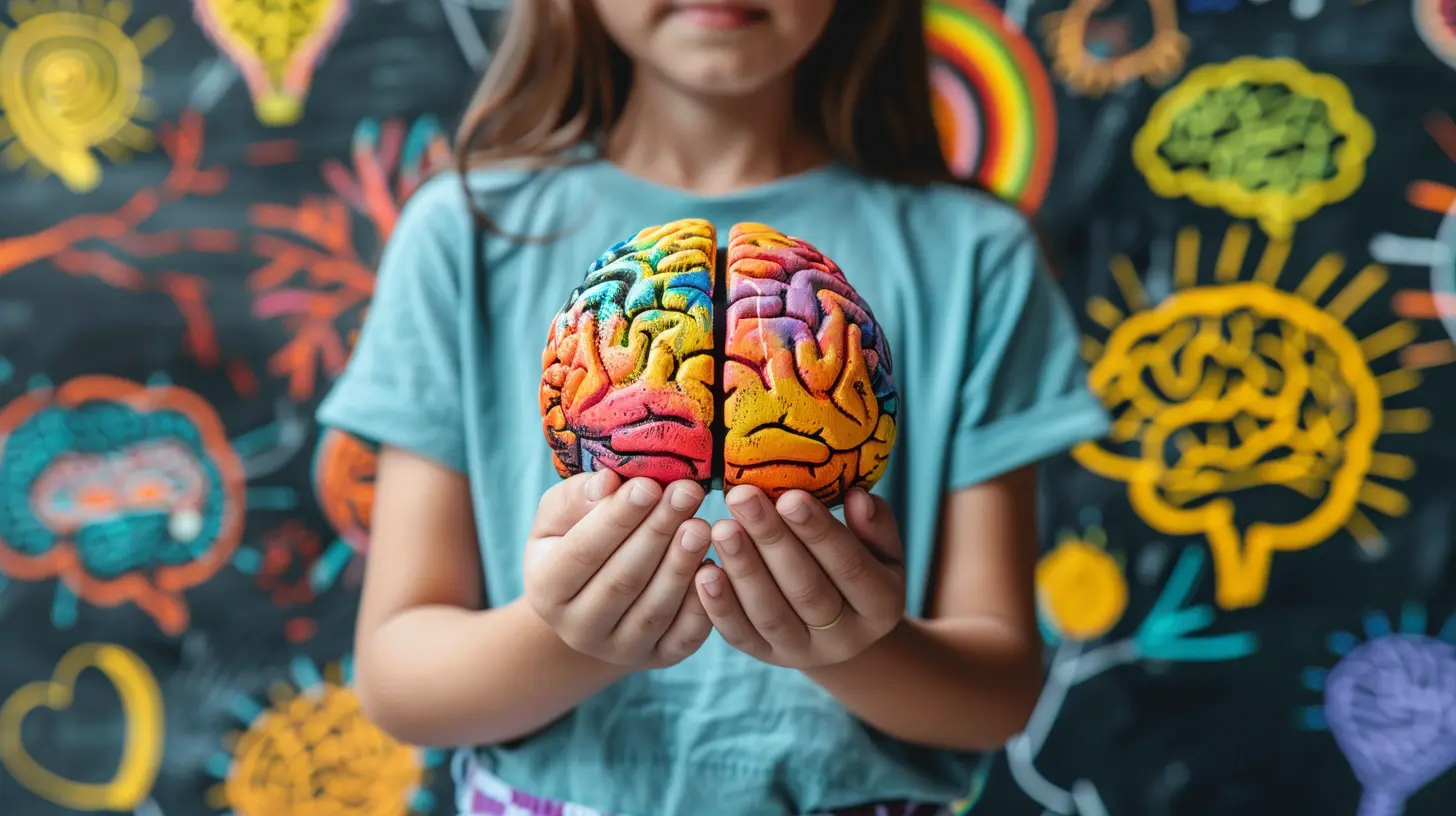The Role of Routine in Promoting Healthy Brain Development
1 October 2025
Ever notice how your kid thrives when they know what to expect? One day they're bouncing out of bed, ready to tackle the world, and the next, they're a mess of emotions just because bedtime got delayed by 15 minutes. That’s not a coincidence. It turns out that routine isn't just about keeping your day from falling apart—it's a powerful tool that shapes your child's growing brain.
Creating structure in your child’s daily life can literally help wire their brain for success, and in this article, we’re going to unpack how that works and why it matters so much.
Why Routine Matters More Than You Think
Let’s be real—life with kids is chaos on a good day. Spilled cereal, missing socks, impromptu tantrums... you name it. But routines? They’re like the calm in the storm. They give your child a sense of predictability, which in turn builds a sturdy foundation for mental and emotional development.When you put things like meals, naps, bedtime, and even playtime on a regular schedule, you're doing more than just keeping the peace—you’re supporting your child's brain as it learns how to function efficiently, handle stress, and process the world.
Brain Basics: What’s Going On in There?
Before we dive deeper, let’s break down what’s actually happening inside those tiny heads.The human brain doesn’t fully mature until well into the mid-20s. In early childhood, the brain is developing at lightning speed, forming connections (called synapses) at a rate of over a million per second. Yes, per second.
This is the critical window where structure plays a major role. Children’s brains are incredibly plastic—meaning they’re shaped by experiences. A predictable daily routine acts like scaffolding, giving the brain what it needs to build strong neural pathways.
Think of it like laying down train tracks. Each repeated activity and response pattern guides the brain on how to react, behave, and think in future situations.
Routines and Emotional Security
Here’s the thing—little kids don’t like surprises (unless it’s, like, cake). They crave structure because it tells them the world is safe and predictable.When children know what comes next, they feel more secure. This emotional security isn’t just “nice to have”—it’s essential. It helps reduce anxiety, behavioral issues, and tantrums because kids aren’t constantly living in survival mode.
And here's where it gets fascinating: this sense of safety helps activate the prefrontal cortex—the part of the brain responsible for planning, decision-making, and self-control. That's right, having a bedtime routine can actually boost your child’s future executive functioning skills.
Cognitive Skills Get a Boost Too
Let’s say your child knows that after breakfast comes playtime, then lunch, then a nap. This sequence helps them develop something called “temporal awareness”—an understanding of time and order.It may sound small, but it’s actually huge. These mental skills are the building blocks of more complex cognitive functions like memory, attention, and organization.
Simple routines that include storytelling, clean-up time, or drawing can significantly enhance their ability to focus, recall information, and even solve problems. You’re not just handing them a crayon—you’re helping prime their brain for higher learning later on.
The Role of Sleep in Brain Development
Raise your hand if bedtime is a battleground. 🙋♀️ We get it. But here’s something that might motivate you to stick to that nightly routine: sleep is when the magic of brain development really kicks in.During sleep, the brain consolidates memories, processes emotions, and flushes out toxins that accumulate during the day. Keeping sleep times consistent helps regulate the circadian rhythm, which is closely tied to cognitive performance and emotional regulation.
So yep—that bedtime story and the lights-out routine aren’t just for show. They’re helping your child’s mind grow stronger and sharper every night.
Social and Communication Skills Thrive in Routine
Think about your daily family rituals—maybe it’s brushing teeth together, reading a favorite book, or saying a little prayer before bed. These shared moments don’t just bond you—they also support your child’s ability to communicate and connect with others.Kids learn best through repetition and observation. When they participate in routines that involve conversation, sharing, and cooperation, they’re actively practicing language and social skills. Over time, this helps them become better listeners, turn-takers, and problem-solvers.
It’s like giving them a daily rehearsal for real-life interactions.
Routines Teach Independence and Responsibility
One of the coolest things about routines? They take the guesswork out of what’s expected—and that’s super empowering for kids.When kids follow the same steps each morning—like brushing teeth, getting dressed, or packing their backpack—they start doing it all on their own. That’s independence in action.
Over time, you’re not just making life easier for you, you're helping your child develop a sense of responsibility, self-efficacy, and confidence. These are massive wins for brain development because they reinforce positive neural circuits related to motivation and competence.
Handling Disruptions: Life Happens, But Structure Still Helps
Here’s the thing: you don’t have to run your home like a military camp to see the benefits. Life happens. Vacations, holidays, illnesses, even random Tuesday meltdowns—some days are just off.But having a routine doesn’t mean you have to be rigid. It’s more about consistency than perfection. A flexible, responsive routine can help children adapt to change without feeling like the world’s falling apart.
In fact, when disruptions happen, a strong routine helps them bounce back faster. It’s like having an internal compass that still points north even when the weather gets rough.
How to Build a Brain-Boosting Routine
So, wondering how to get started or improve the routine you already have? Here are some quick tips to get you going:1. Keep it simple and consistent
Start with the basics: wake-up times, meals, naps, and bedtime. Build around those and keep them as regular as possible.2. Use visuals and cues
Young kids respond really well to charts, songs, and cues like dimming the lights before bed. It gives them gentle reminders of what’s next.3. Make transitions smoother
Give warnings before switching activities: “In five minutes, we’re cleaning up and heading to the bath.” This helps reduce resistance and anxiety.4. Allow room for flexibility
Leave space for free play, spontaneous fun, and downtime. Routines should support your family—not stress you out.5. Stick with it
Habits take time. You’re not aiming for perfection; you’re aiming for rhythm. With patience and persistence, routines will start to feel second nature.Final Thoughts
You don’t need a parenting PhD to support your child’s brain—just a little structure and a whole lot of love. Routines aren’t just about keeping your kid in line; they’re about setting up a safe, predictable space for their brain to develop to its fullest potential.When your child knows what to expect, they’re free to focus on what they do best: learning, growing, and being their beautifully chaotic selves.
So even on the days when things go off the rails (and they will), remember this—every consistent moment, no matter how small, is helping build a better brain.
all images in this post were generated using AI tools
Category:
Child DevelopmentAuthor:

Maya Underwood
Discussion
rate this article
1 comments
Will McConnell
Routines rock! They nurture happy, healthy brains!
October 9, 2025 at 4:47 AM

Maya Underwood
Thank you! Routines indeed provide structure and stability, essential for fostering healthy brain development.


